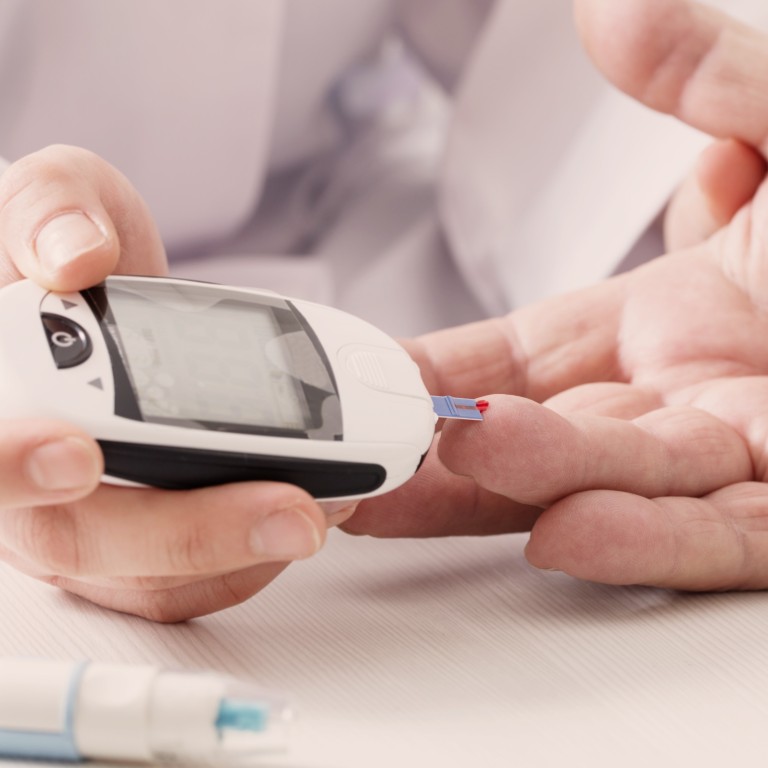
Have diabetes? From depression to anxiety, the mental health issues you could face, and how to keep a lid on them
- Being diagnosed with diabetes can cause feelings of guilt and frustration, and lead to anxiety and depression
- Changing your lifestyle, and the support of friends and family, are key to feeling better about your condition
When she was 19, actress Halle Berry was diagnosed with diabetes.
At first, the news left the now-53-year-old Oscar winner petrified, according to a 2005 interview with the Daily Mail. “Diabetes caught me completely off guard … They told me I might lose my eyesight, or I could lose my legs. I was scared to death, I thought I was going to die,” she told the British tabloid newspaper.
“This is a disease I was diagnosed with when I was 13,” Jonas said at the Radio Disney Music Awards in 2017. “It was a moment in my life when I was just getting ready to start making music with my brothers, and touring, and it was something I thought would slow me down before I even got started.”

It is not uncommon to experience worry, fear, anxiety and frustration after being diagnosed with diabetes. In a Diabetes UK survey in 2017, 8,500 diabetes sufferers of different ages, ethnicities and backgrounds shared how their diagnosis affected their mental health, with three in five, or 64 per cent, saying that they often or sometimes feel down because of the disease.
A 2016 study, published in the journal Psychosomatic Medicine, found that depression was more prevalent in people with diabetes, regardless of whether their condition was diagnosed or undiagnosed, than in the general population. The same study showed that participants who were aware they were diabetic had a higher prevalence of anxiety than those who were not aware they had the disease.

Diabetes and depression appear to be interrelated: changes in the brains of people with diabetes increase those patients’ risk of depression, and conversely, depression is tied to physical inactivity, a higher calorie intake and decreased self-care, all of which may increase a person’s risk of diabetes.
Ohio University researchers in the United States did a survey-based study in 2017 and 2018 that revealed that “diabetes distress” was high among university students and faculty staff and could negatively impact their quality of life. The results were published in August 2019 in the Journal of the American Osteopathic Association.

People with diabetes also feel guilt about having the disease. According to research from the International Diabetes Federation, half of people living with diabetes felt that their diagnosis had put a strain on their family. Two in five said that they felt anxious when they were diagnosed, and a similar number did not want to be a burden on their families.
“When diagnosed with the disease, diabetes patients might feel down for a number of reasons,” says endocrinologist Dr Joyce Yau See-yun, from the Hong Kong Pacific Diabetes & Endocrine Centre.
“First, they know that diabetes is a chronic disease and that they may need to take medication for the rest of their lives. They also fear that they may need to administer insulin to themselves at some point.
“Patients with a family history of the disease and who have relatives with diabetes-related complications, like kidney failure or blindness, also fear that they may meet the same fate. Many patients are also emotionally affected by the thought of having to overhaul their lifestyles – they assume that they will have to restrict social gatherings and give up eating out.”

Dr Julian Hong, a general practitioner at Dr Tan & Partners clinic in Singapore, agrees that effecting real and lasting change to your lifestyle after you have been diagnosed with diabetes is not easy.
“You have to be strongly motivated or understand first-hand the health complications of the disease, such as stroke, heart attack, blindness, kidney failure, and vascular disease resulting in limb amputations. Patients who have [witnessed] … family members suffer these complications are usually more inclined to make changes to their lifestyle and worry about their mortality.”

This is why it is important for patients to educate themselves about the disease.
“Much of their frustration and helplessness stem from inadequate information or misconceptions about diabetes,” Yau says. “Patients should educate themselves so that they understand the disease better. When it comes to controlling their blood sugar, they should also ask their doctor how to adjust their diet and other daily habits in a way that best suits their lifestyle,” she says.
“Once they have their blood sugar under control, they should have a more positive outlook on the disease. I want to stress that prevention is key to minimising the risk of complications, so taking control now will lead to fewer complications and a better chance at a near-normal life in the future.”

Social and family support is also crucial. Hong says that this can help a patient change their lifestyle and improve or even resolve their diabetes. A 2019 study in the International Journal of Nursing Sciences found that increased social support was inversely related to emotional distress in patients with type two diabetes.
Patients with a family history of the disease and who have relatives with diabetes-related complications, like kidney failure or blindness, also fear that they may meet the same fate
If you experience a change in mood, do not brush it aside. Instead, bring it up to your doctor because, when under control, depression and anxiety may lead to better outcomes for your diabetes diagnosis.
“Look out for mood changes that persist beyond two weeks,” says Hong. “Initially, you may feel low all the time or lose interest in the things you enjoy. These symptoms may later be compounded by sleep disturbances, appetite changes, lethargy, and feelings of guilt and worthlessness.”
Setting up a routine will help you stay positive, Yau says. Having an exercise schedule to follow, for instance, or eating your meals at specific times can help you feel more in control of your health.
Berry and Jonas now have their diabetes in check. Berry has eliminated bread and most processed sugars from her diet, while Jonas has taken charge of his overall health.
In a November 2019 Instagram post, the pop singer wrote about how the experience changed him – “[It] shaped how I approach my health – working out, eating well, and always thinking about my blood sugar and insulin needs. You can’t always see what goes into managing an invisible illness, and [type one] diabetes can feel lonely and isolating.”

